Concrete Slabs Installation in Bakersfield, California
Concrete slab installation services in Bakersfield, CA are professionally offered by True Base Concrete Company, a trusted brand specializing in residential foundations, commercial concrete slabs, and driveway construction. The company provides expertise in reinforced concrete, structural foundations, and flatwork services, ensuring durable and long-lasting results for homeowners and businesses.
True Base Concrete Company in Bakersfield connects skilled concrete contractors with projects requiring patio slabs, garage flooring, sidewalk construction, and custom concrete solutions. Customers benefit from precision installation, high-quality materials, and reliable service backed by experience in the construction industry, building materials, and masonry work across Kern County.
What is a Concrete Slab?
A concrete slab is a flat structural element made of reinforced concrete that provides a strong, level foundation for buildings, floors, pavements, and driveways. Concrete acts as the primary material, while steel reinforcement bars increase load-bearing capacity, durability, and resistance against cracking.
A concrete slab distributes weight evenly across the ground, which makes it essential for construction projects like residential foundations, commercial floors, and industrial warehouses. Slab thickness, curing process, reinforcement design, and surface finishing determine strength, insulation, and long-term performance.
What are the Types of Concrete Slabs Installation Services True Base Concrete Provide in Bakersfield, CA?
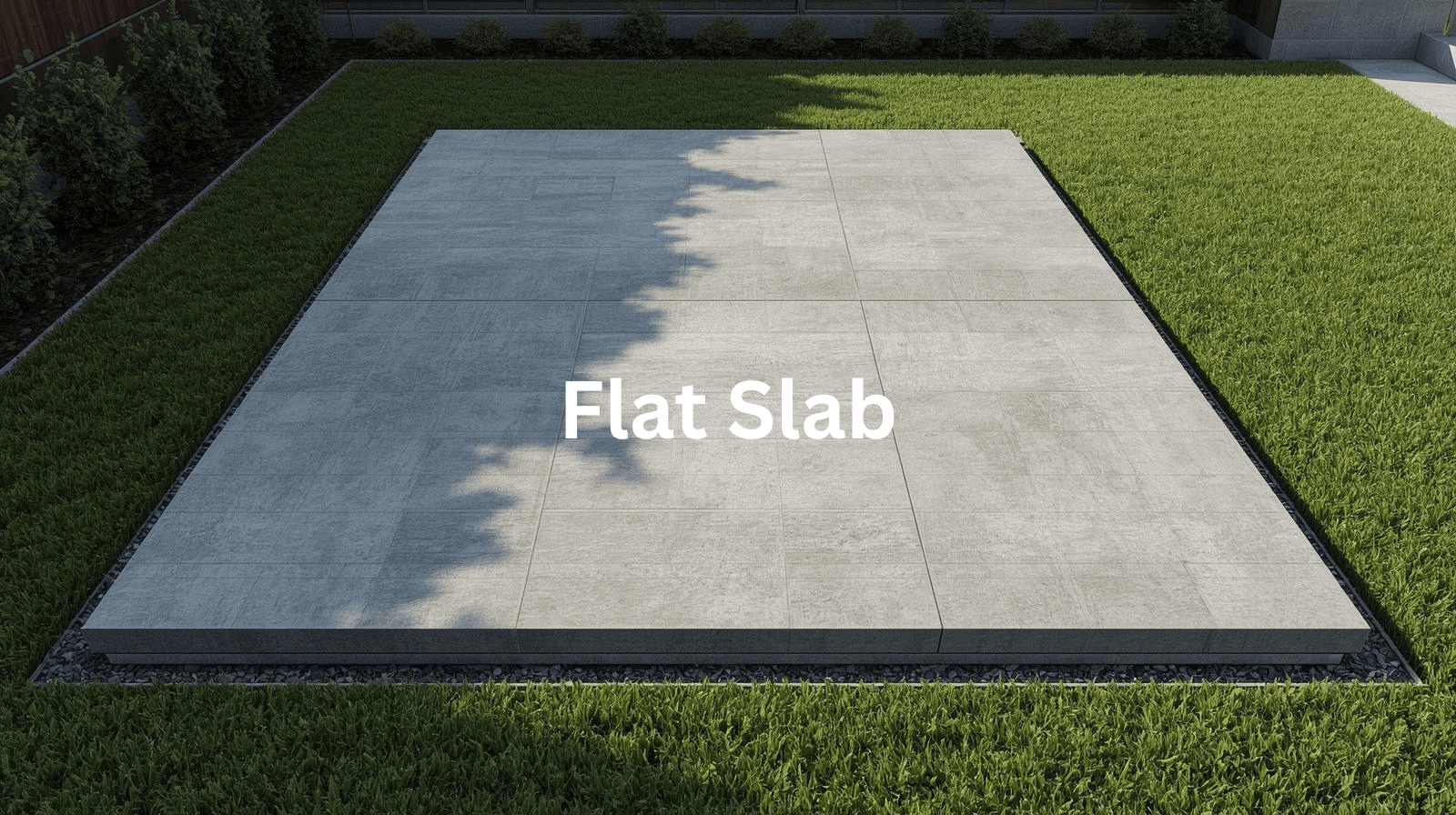
Flat Slab
A concrete slab is defined as a flat, horizontal structural element made from reinforced concrete that forms the foundation or floor surface in residential, commercial, and industrial construction projects. Concrete slab strength depends on mix design, reinforcement, curing process, and site preparation, making it a critical component for structural integrity and load-bearing capacity.
True Base Concrete Company handles concrete slab projects by preparing the subgrade, ensuring proper compaction, and applying formwork for precise dimensions. The company pours, levels, and finishes the slab with advanced equipment, while using quality reinforcement and curing methods to deliver durable, long-lasting foundations for driveways, patios, and building floors.
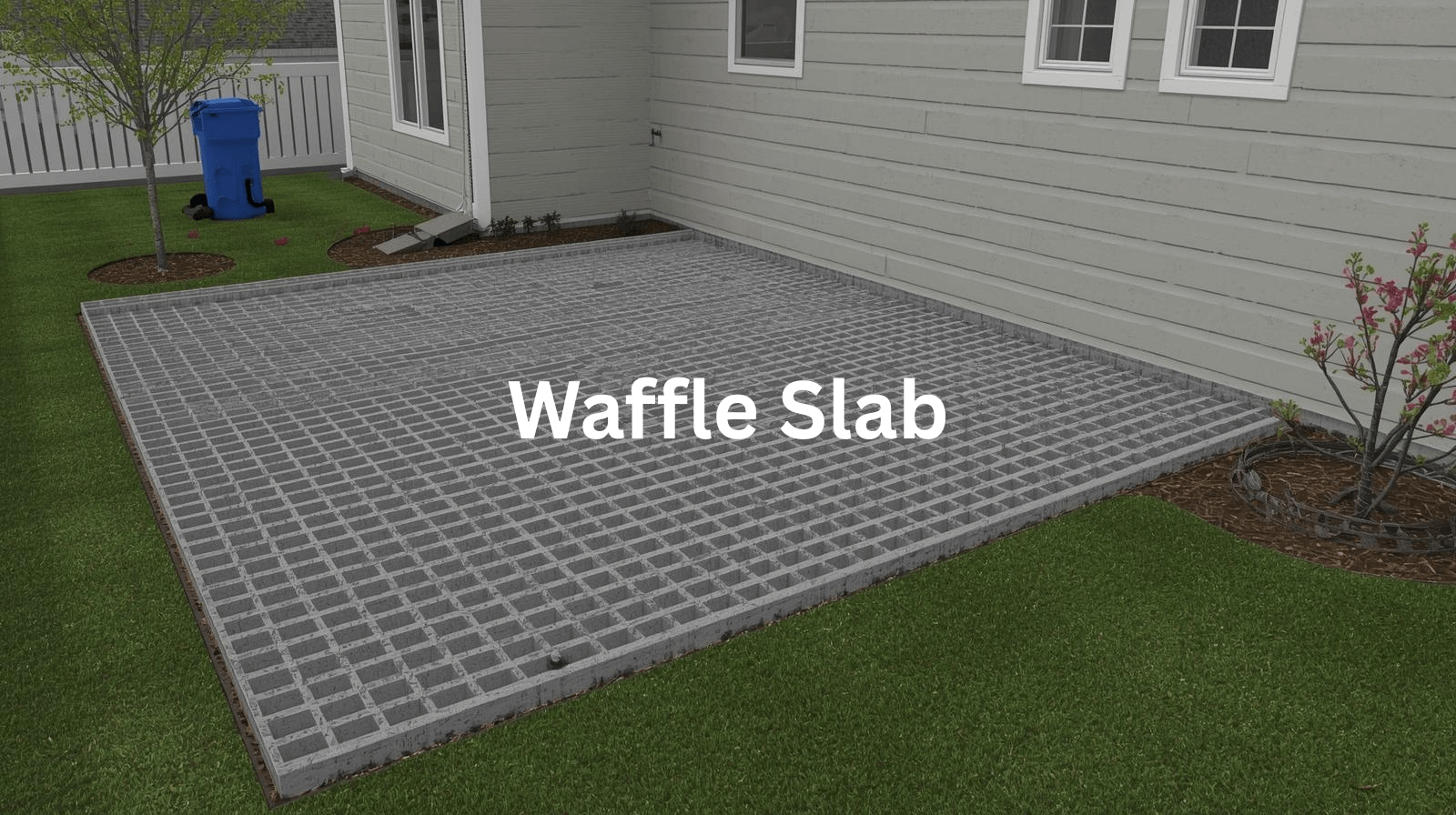
Waffle Slab
A waffle slab is a reinforced concrete slab system defined as a flat plate with a grid of ribs on the underside that increases load-bearing capacity while reducing material usage, making it ideal for commercial buildings, industrial structures, and large-span floors. The grid pattern of beams supports the slab and distributes structural loads efficiently, connecting the slab’s surface with the supporting framework for strength and durability.
True Base Concrete Company handles waffle slab projects by using advanced concrete pouring techniques, precise formwork systems, and reinforced steel placement to ensure structural integrity and cost efficiency. The company’s project management process connects structural engineering design with on-site execution, guaranteeing quality control, safety compliance, and timely completion for clients needing durable and high-performance slab foundations.
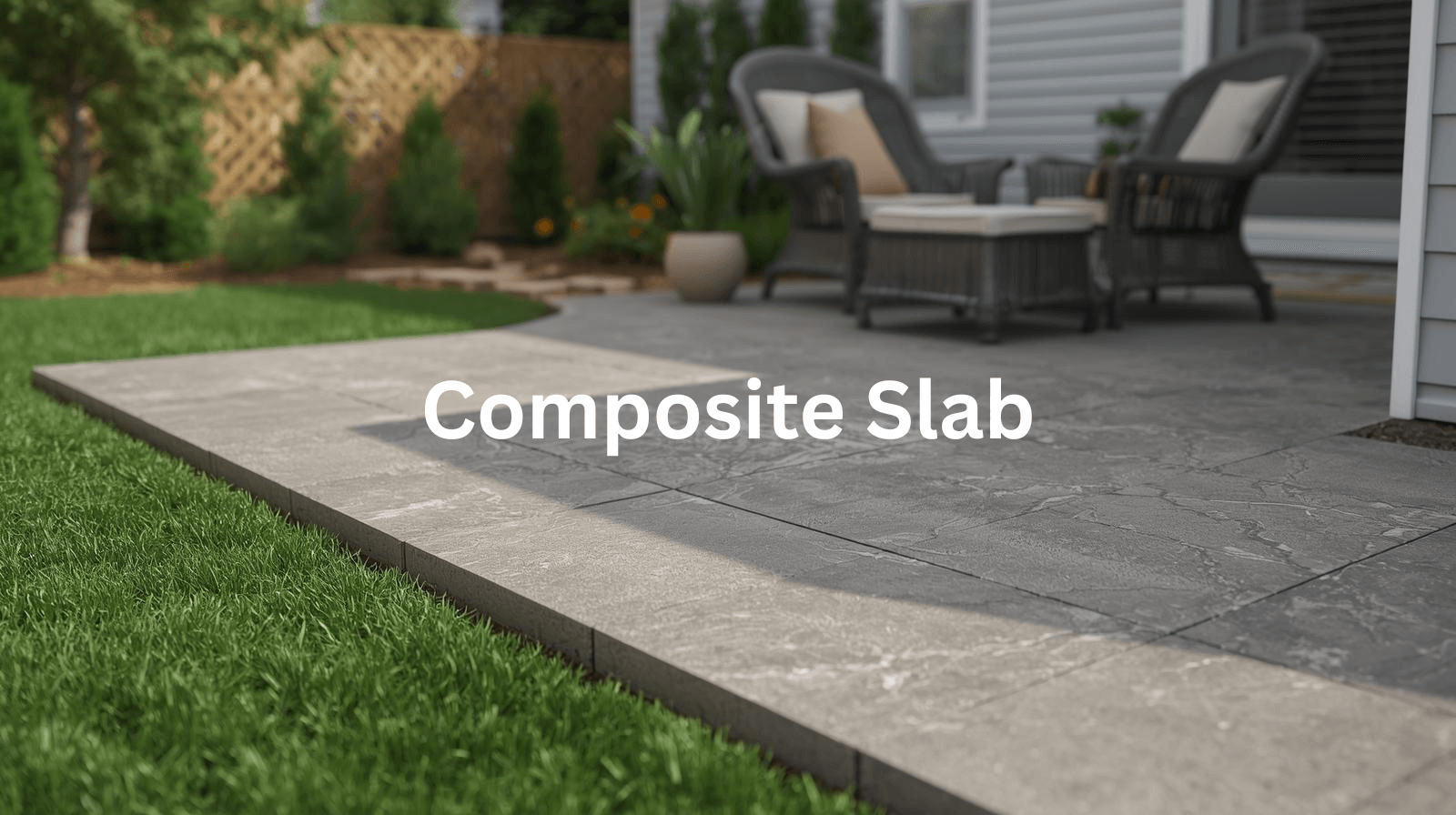
Composite Slab
Composite slab is defined as a structural floor system where reinforced concrete is poured over profiled steel decking to create a single integrated unit that improves load-bearing capacity and durability. Composite action between concrete and steel enhances structural strength, fire resistance, and cost efficiency in high-rise buildings, bridges, and industrial projects.
True Base Concrete Company manages composite slab projects by providing site-specific design, advanced formwork systems, and precise concrete placement techniques. The company ensures slab performance through quality control, reinforcement detailing, and adherence to structural engineering standards, delivering safe, long-lasting, and efficient concrete flooring solutions.
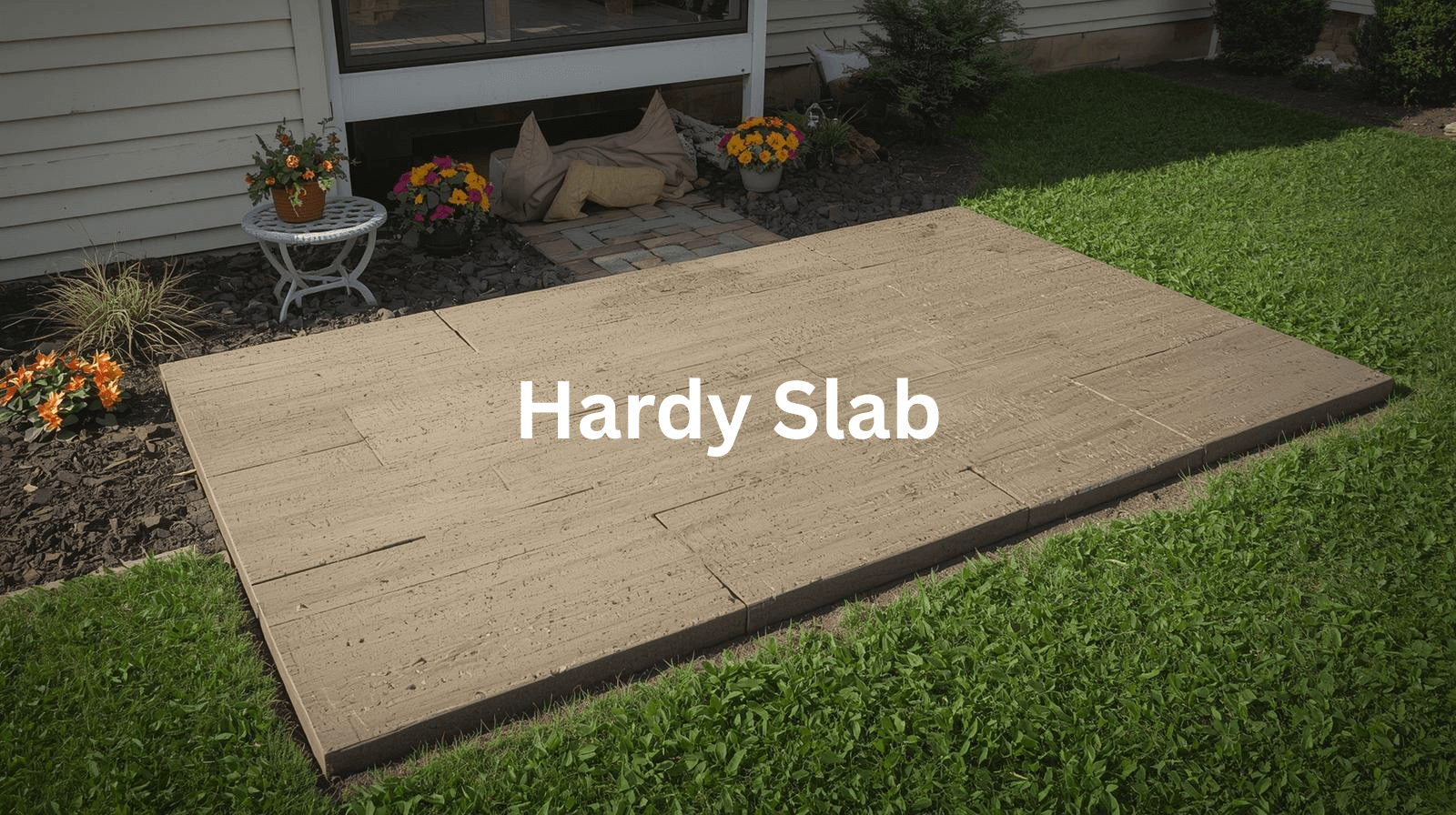
Hardy Slab
A Hardy Slab is defined as a reinforced concrete slab system that uses hollow blocks or hardy boards as fillers between ribs, which reduces dead load while maintaining structural strength for residential and commercial construction. The slab system combines concrete, steel reinforcement, and lightweight filler material to achieve durability, thermal insulation, and cost efficiency in building projects.
True Base Concrete Company manages Hardy Slab projects by using advanced concrete pouring techniques, precision reinforcement placement, and quality control standards to ensure long-term performance. The company coordinates design planning with site engineers and structural consultants so that slab thickness, load distribution, and curing processes align with client requirements and safety codes.
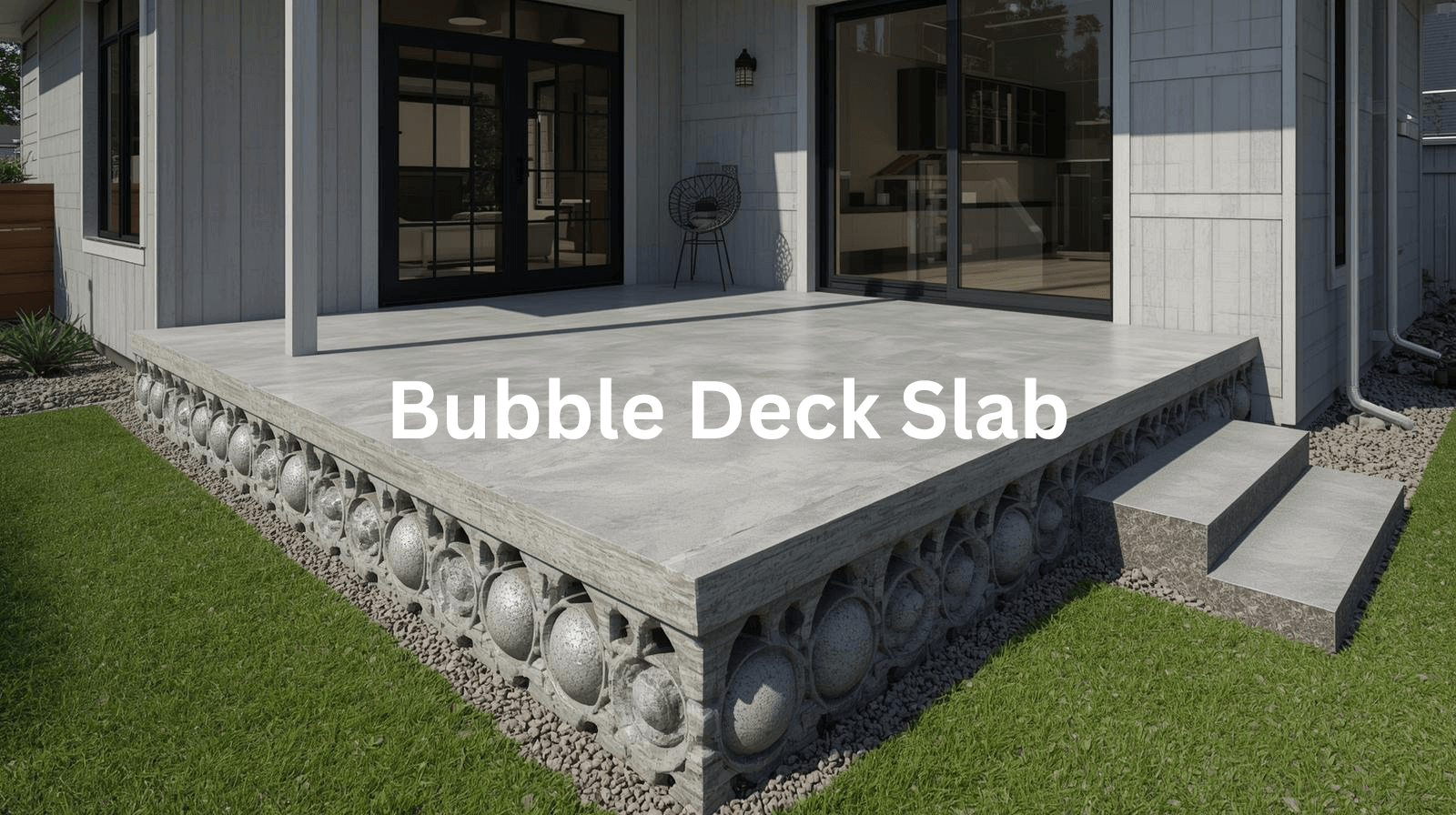
Bubble Deck Slab
Bubble Deck Slab is defined as a reinforced concrete slab system that reduces self-weight by integrating hollow plastic balls within the concrete matrix, and the slab structure allows load distribution with less concrete consumption. Bubble Deck technology connects lightweight spherical voids with reinforcement mesh, and the structural system improves span efficiency while maintaining strength.
True Base Concrete Company handles Bubble Deck Slab projects by applying precise concrete placement methods, advanced reinforcement detailing, and quality control standards aligned with structural engineering codes. The company manages slab installation through project planning, on-site supervision, and material optimization to ensure durability, cost savings, and sustainability for commercial and residential construction.
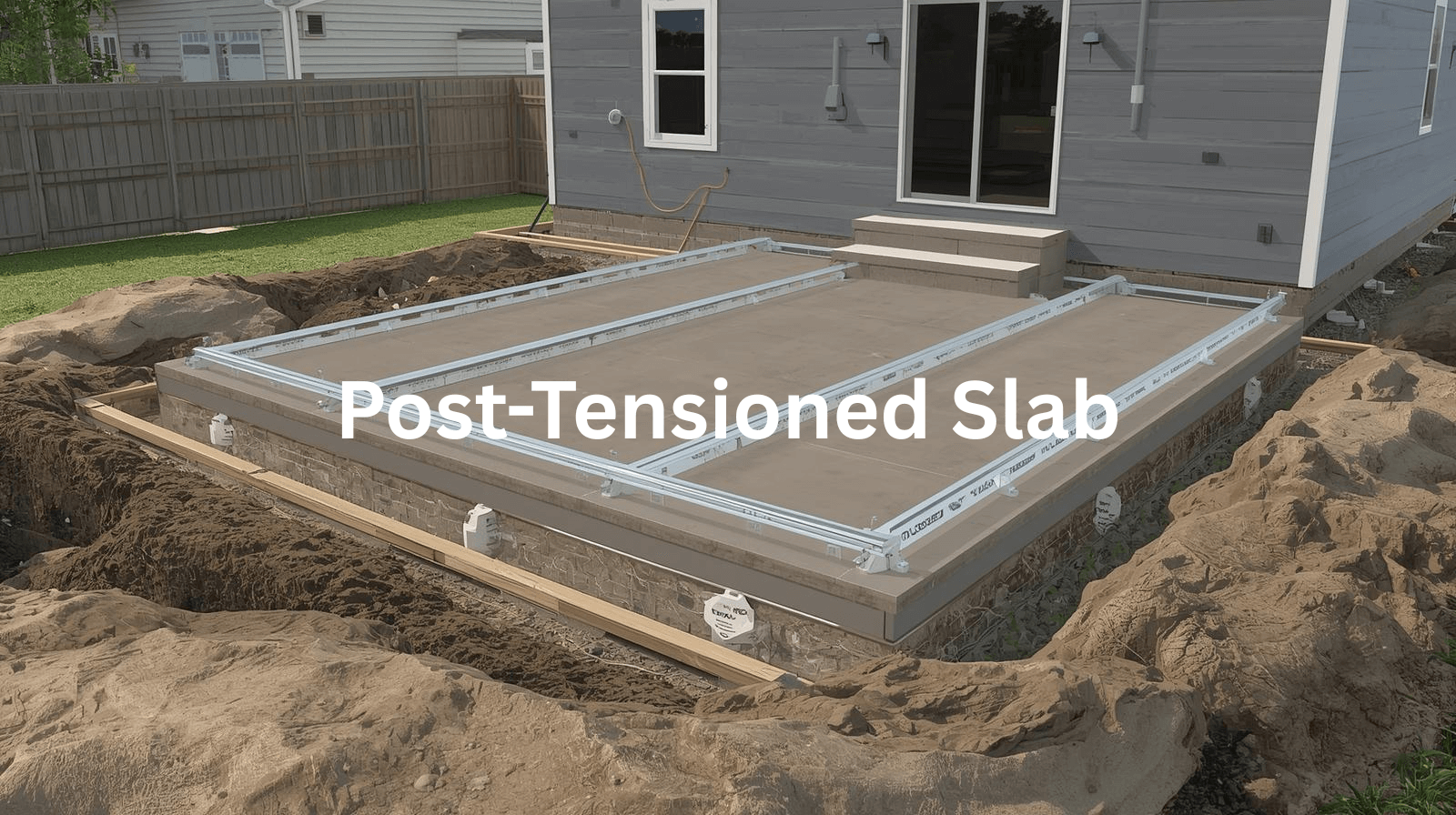
Post-Tensioned Slab
A post-tensioned slab is a reinforced concrete slab where high-strength steel tendons are tensioned after the concrete cures, allowing the slab to resist bending stresses, reduce cracking, and span larger distances with less thickness. The structural system uses concrete as the compression element and steel tendons as the tension element, creating a durable and efficient foundation for commercial buildings, residential complexes, and parking structures.
True Base Concrete Company manages post-tensioned slab projects with a focus on engineering precision, material quality, and construction safety. The company coordinates design analysis, tendon placement, stressing operations, and curing schedules so that the slab delivers optimal load-bearing performance, long-term durability, and cost efficiency for clients seeking reliable concrete solutions.
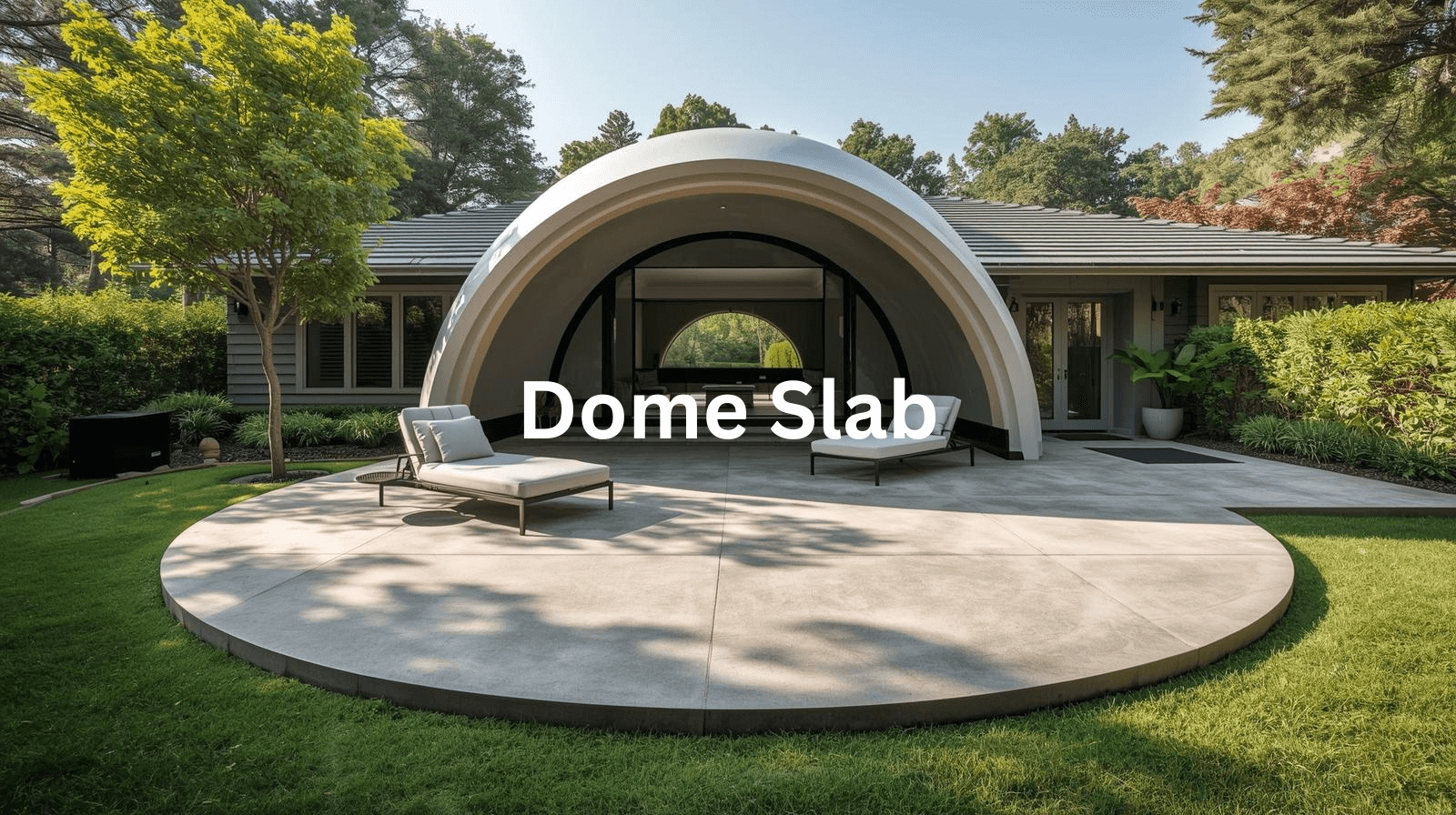
Dome Slab
A dome slab can be defined as a reinforced concrete slab with a curved, dome-like surface where the structural form distributes load efficiently across the base and reduces the need for excessive support columns. The dome slab structure provides durability, strength, and thermal benefits, making it a preferred choice in residential, commercial, and industrial concrete construction projects.
True Base Concrete Company handles dome slab projects by applying advanced concrete mix design, precision formwork, and reinforcement techniques to ensure stability and accuracy. The company manages every stage from site preparation to slab curing, maintaining quality control standards while using specialized equipment and skilled concrete contractors for long-lasting structural performance.
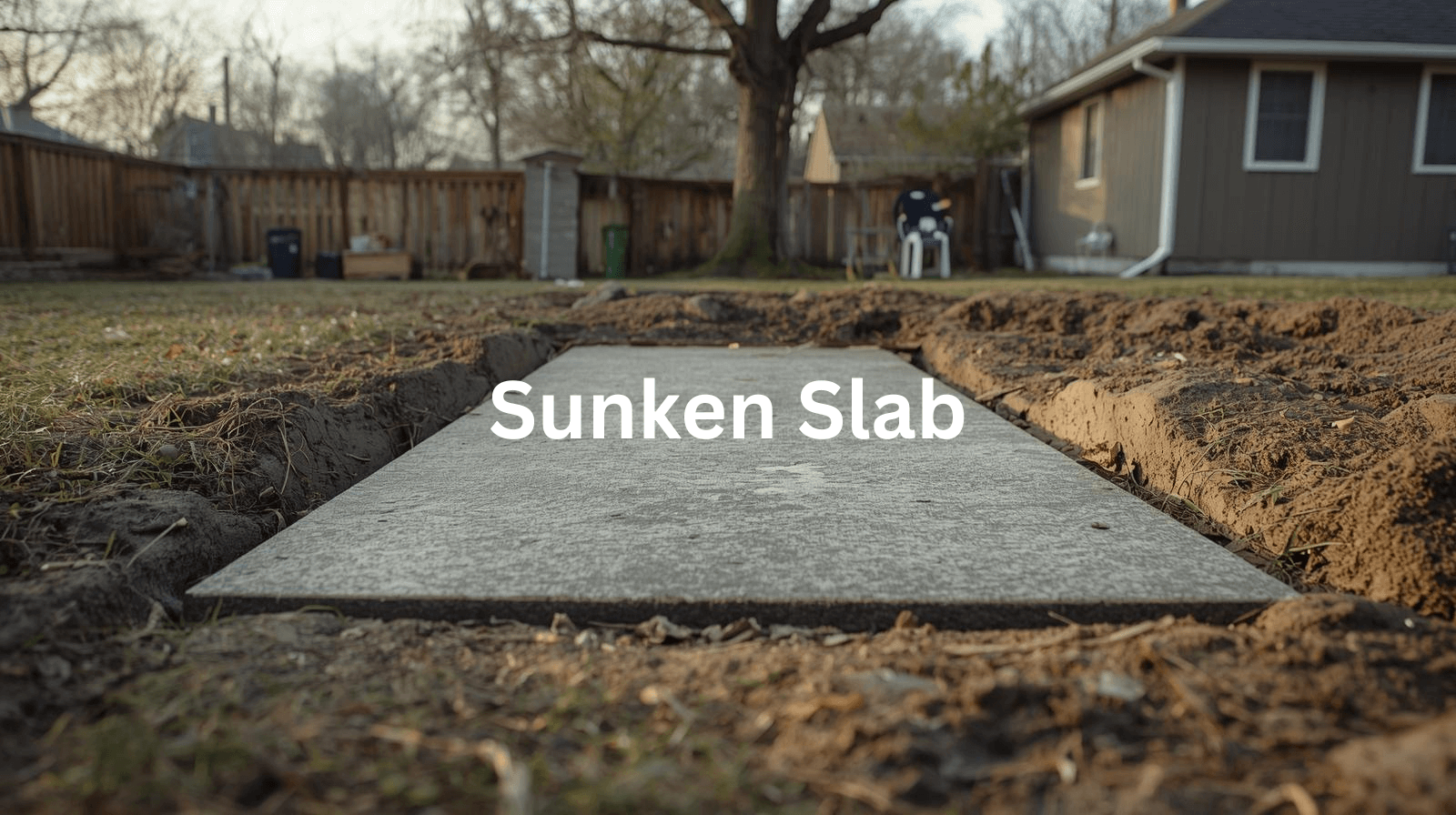
Sunken Slab
A sunken slab is a type of reinforced concrete slab constructed at a lower level than the main floor to provide space for plumbing lines, drainage pipes, and waterproofing layers in bathrooms, kitchens, or utility zones. A recessed slab surface helps in effective water flow management and maintains the finished floor height without disturbing the structural alignment of the building.
True Base Concrete Company handles sunken slab projects by using quality concrete mix, steel reinforcement, and advanced waterproofing materials for long-lasting performance. The company ensures precise excavation, accurate leveling, and proper curing, and the completed slab provides structural strength, moisture resistance, and reliability for both residential and commercial construction.
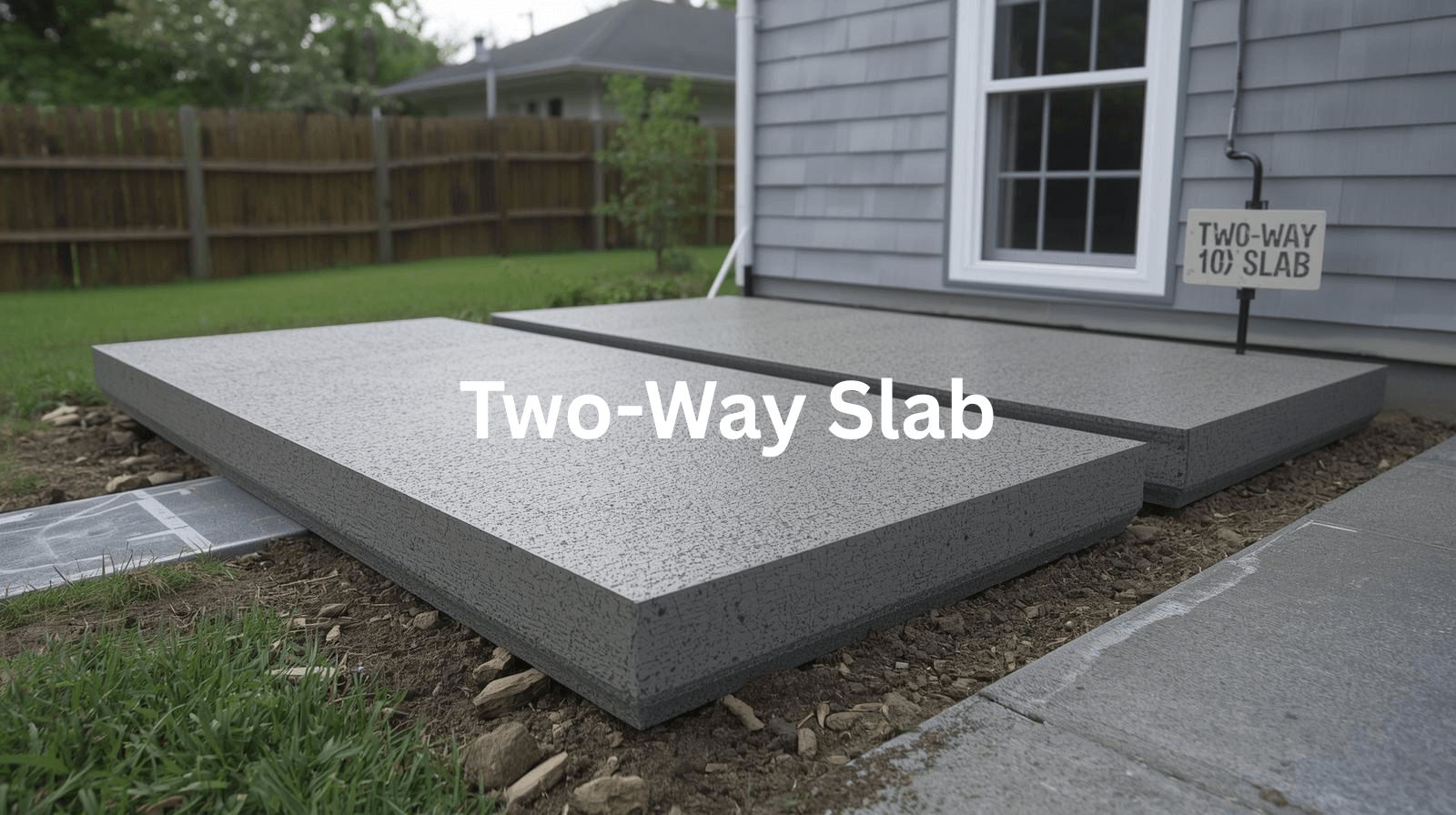
Two-Way Slab
A two-way slab is defined as a reinforced concrete slab supported on all four sides where loads are carried in both directions for uniform distribution. A two-way slab provides structural efficiency, reduced deflection, and better load-bearing capacity for commercial buildings, residential apartments, and industrial floors.
True Base Concrete Company handles two-way slab projects with precise reinforcement placement, accurate shuttering, and high-quality concrete pouring to ensure strength. The company ensures balanced load transfer, level finishing, and long-term durability so clients receive a reliable structural system built to last.
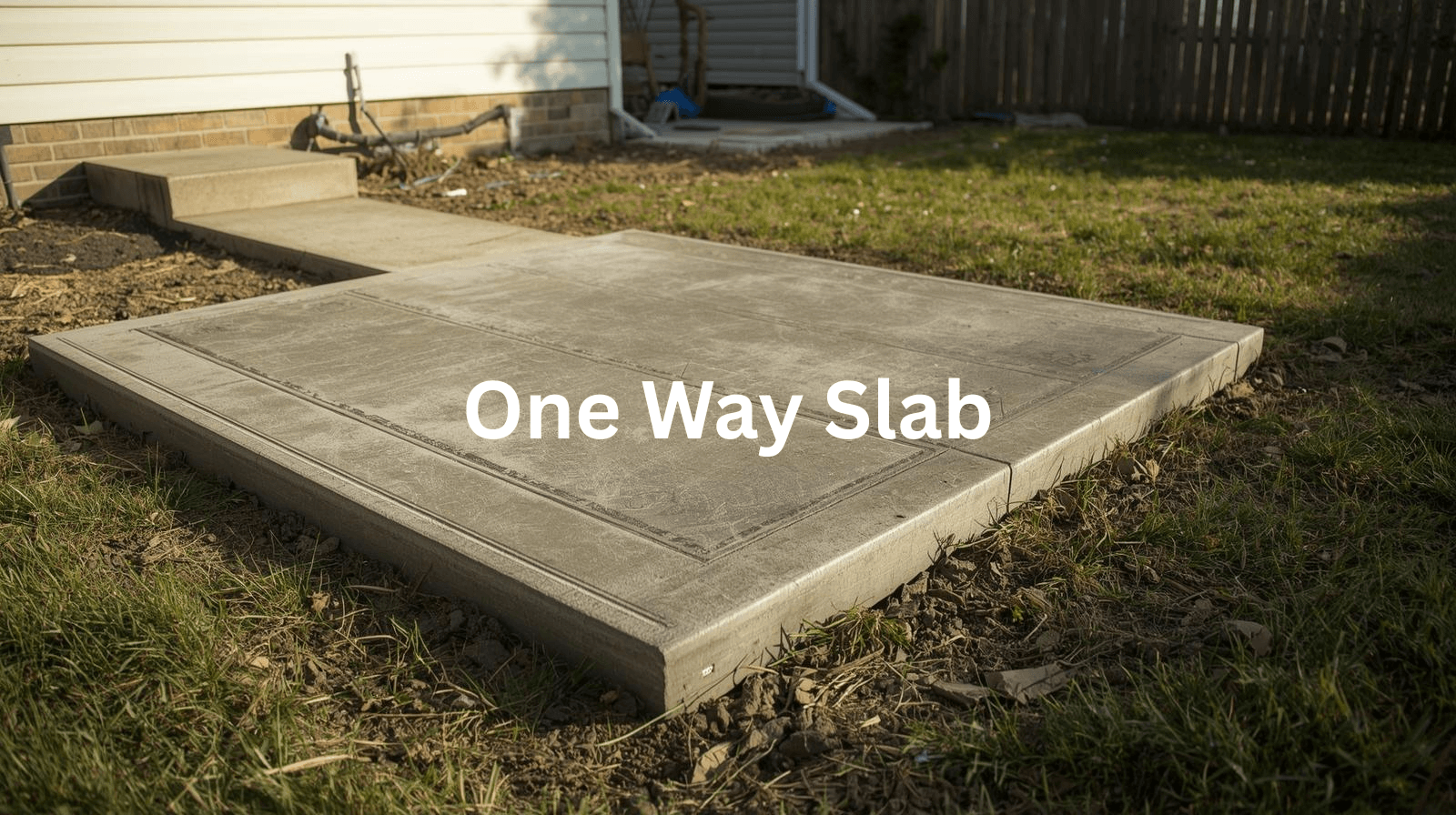
One-Way Slab
A one-way slab is defined as a reinforced concrete slab supported on two opposite sides where the load transfers in one direction along the shorter span. A one-way slab provides structural efficiency for floors, corridors, and roofs where the span length is greater in one direction, making load distribution predictable and stable.
True Base Concrete Company handles one-way slab projects with precision by designing reinforcement bars along the shorter span to resist bending stresses. The company ensures slab casting, curing, and finishing are executed with quality control so that the structure delivers strength, durability, and long-term performance for residential and commercial buildings.
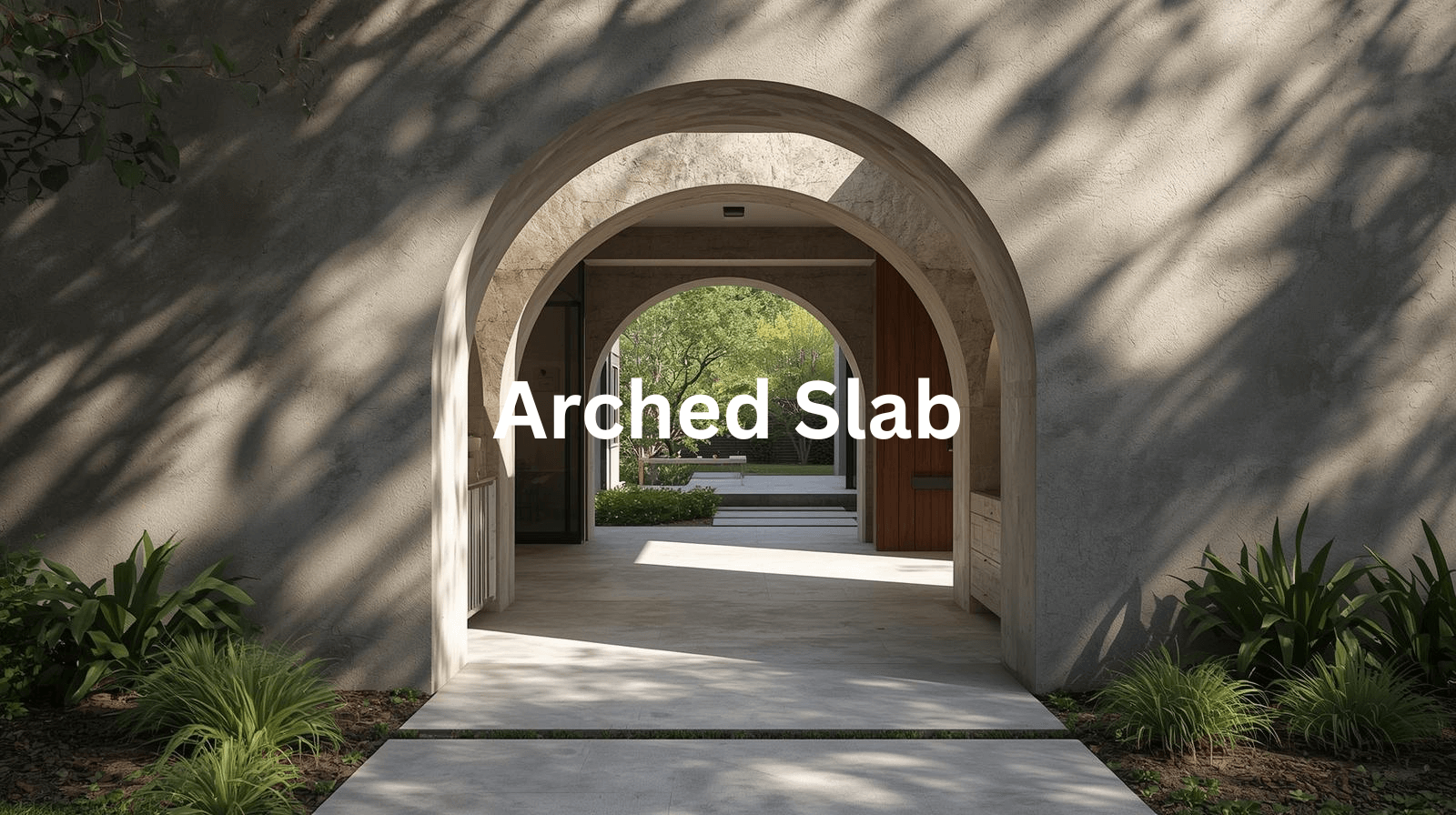
Arched Slab
An arched slab is defined as a reinforced concrete slab constructed in a curved or arch-like profile to transfer loads efficiently while reducing the need for heavy support. An arched slab provides structural strength, architectural appeal, and effective load distribution in bridges, halls, and specialized building designs.
True Base Concrete Company handles arched slab projects by applying precise formwork, advanced reinforcement placement, and high-quality concrete pouring techniques to achieve structural stability. The company ensures the curved profile aligns with design specifications, delivering durability, aesthetic value, and reliable performance for both residential and commercial construction needs.
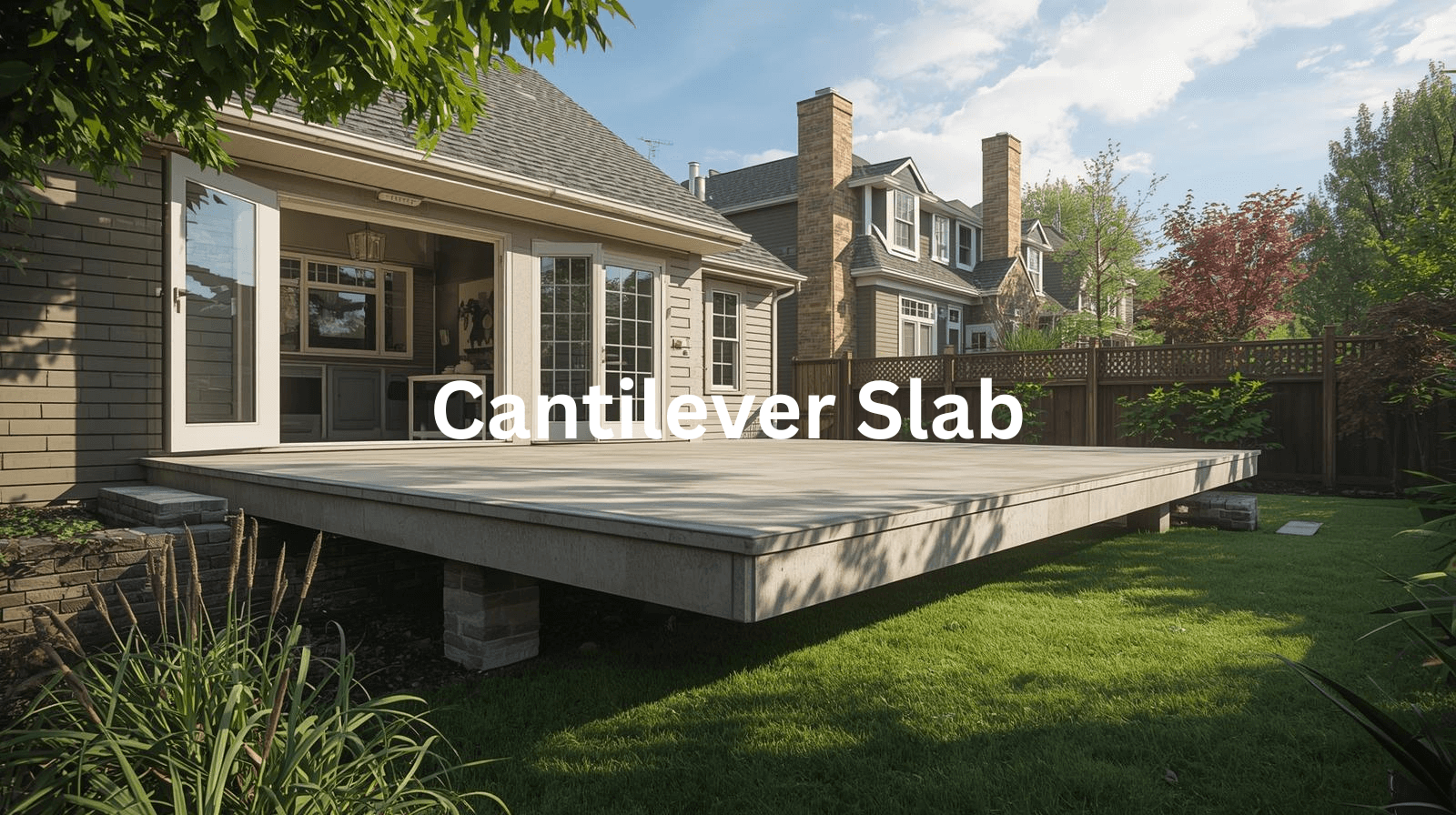
Cantilever Slab
A cantilever slab is defined as a reinforced concrete slab that projects beyond its support without external bracing, commonly used in balconies, projections, or extended overhangs. A cantilever slab carries its load back to the fixed support, and the structural design ensures stability, safety, and durability under both live load and dead load conditions.
True Base Concrete Company handles cantilever slab projects by applying precise reinforcement detailing, advanced concrete placement, and quality formwork to achieve strength and balance. The company ensures proper load transfer, crack resistance, and long-term performance, delivering reliable construction solutions for residential, commercial, and industrial structures.
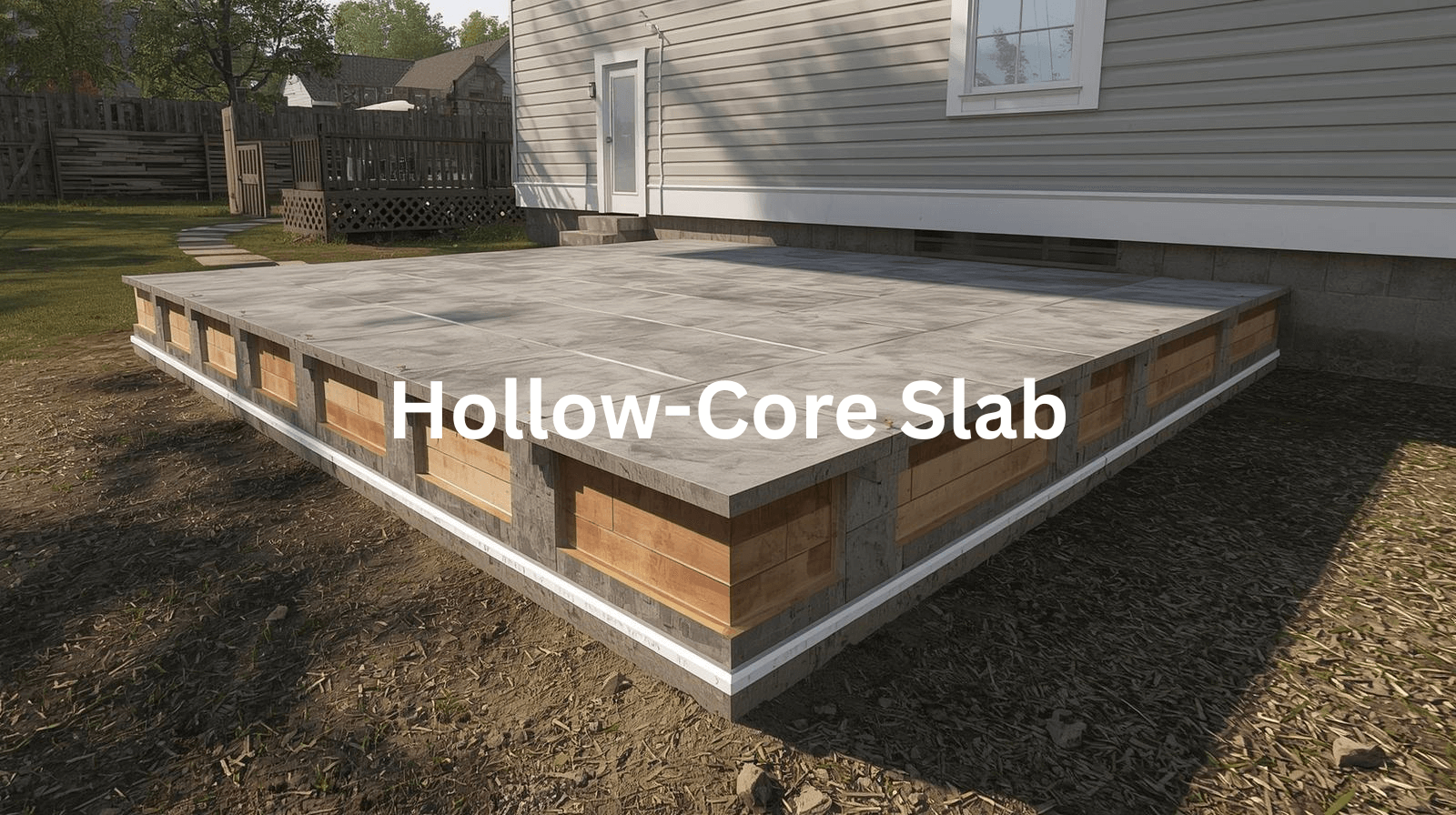
Hollow-Core Slab
A hollow-core slab is defined as a precast, prestressed concrete element containing continuous hollow voids that reduce self-weight while maintaining high structural strength. A hollow-core slab provides efficient load-bearing capacity and is commonly used in multi-story buildings, parking structures, and commercial floors where reduced material usage and faster installation are priorities.
True Base Concrete Company handles hollow-core slab projects with advanced precast technology, precision reinforcement, and quality control to achieve structural safety. The company delivers projects by managing slab casting, transportation, and on-site installation, ensuring stability, cost-effectiveness, and long-term performance for residential and industrial construction needs.
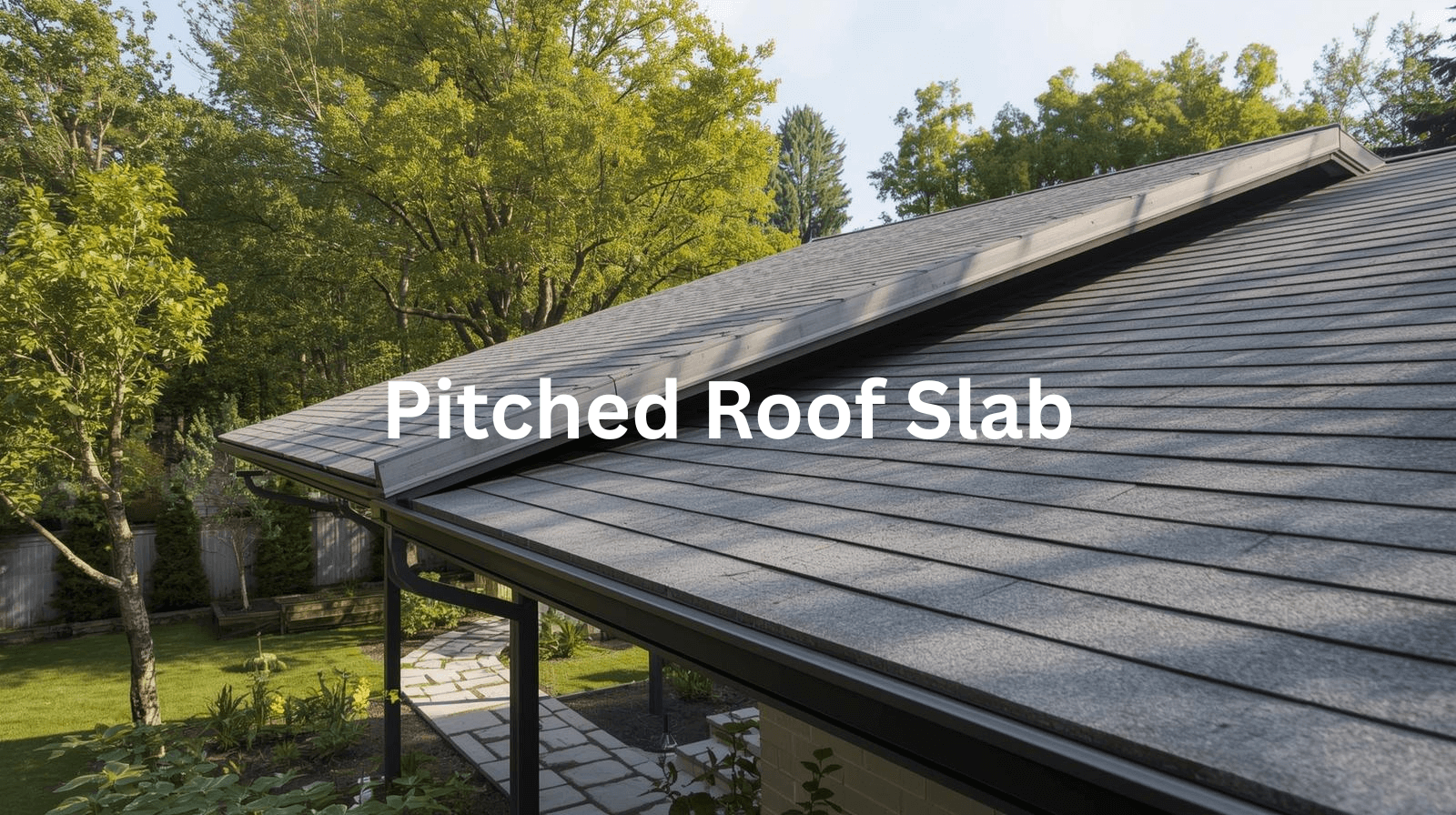
Pitched Roof Slab
A pitched roof slab is defined as a reinforced concrete slab constructed at an inclined angle to allow rainwater runoff, thermal insulation, and aesthetic roof design. A pitched slab creates a sloping surface, and the sloping surface supports drainage efficiency while reducing water stagnation problems in residential and commercial structures.
True Base Concrete Company handles pitched roof slab projects by using precision formwork, proper reinforcement placement, and high-quality concrete to achieve structural strength. The company ensures the inclined surface is cast with accurate slope, effective waterproofing, and long-lasting durability to provide clients with reliable roofing performance.
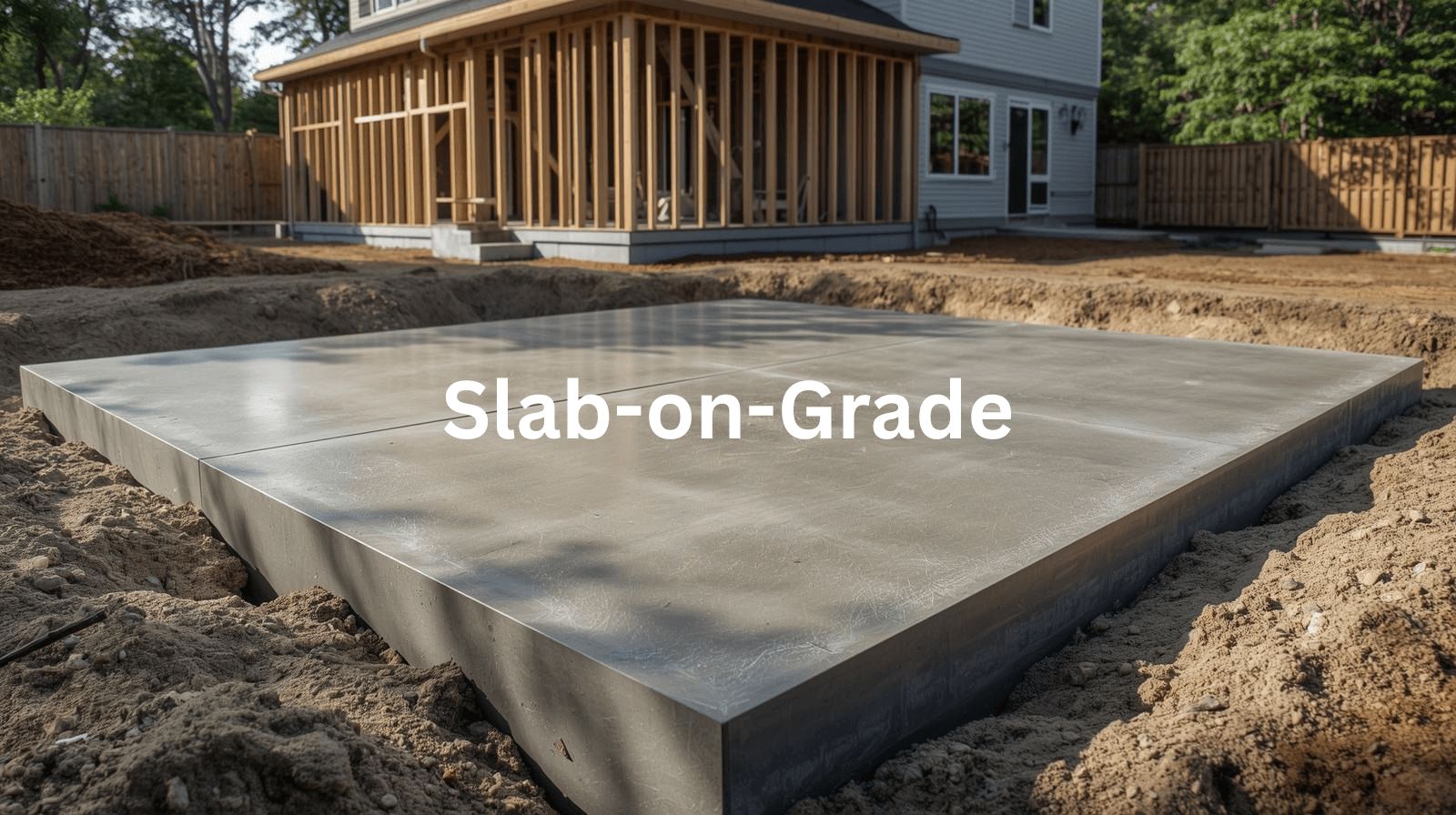
Slab-on-Grade
A slab-on-grade is defined as a single-layer concrete slab poured directly on the ground surface, serving as both foundation and floor for residential and commercial buildings. A slab-on-grade provides structural support while distributing loads evenly across the soil, making it effective for garages, basements, and ground-level floors.
True Base Concrete Company handles slab-on-grade projects by preparing the soil subgrade, installing proper reinforcement, and pouring high-quality concrete to achieve strength and durability. The company ensures the finished slab maintains level stability, moisture protection, and long-term performance for clients seeking reliable foundation solutions.
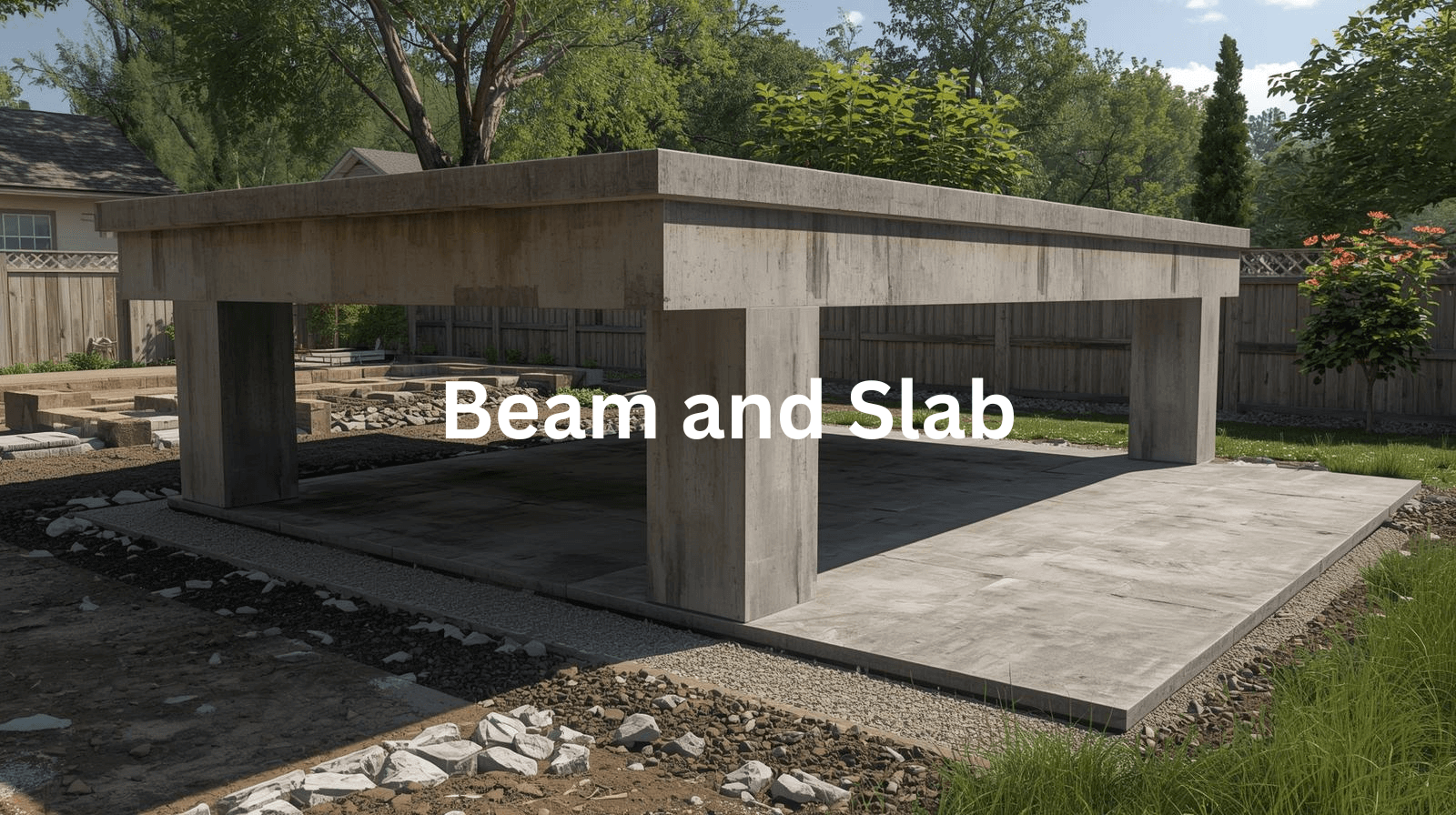
Beam and Slab
A beam and slab system is defined as a structural framework where reinforced concrete beams support flat concrete slabs to safely transfer building loads to the foundation. A beam carries vertical and horizontal forces from the slab, and the slab distributes weight across the surface to provide stability, strength, and uniform floor levels in residential and commercial construction.
True Base Concrete Company handles beam and slab projects by using engineered reinforcement, precision formwork, and high-quality concrete mix to achieve durability. The company ensures that beams align with load paths and slabs maintain proper thickness, delivering safe structural performance, crack resistance, and long-lasting support for every type of building project.
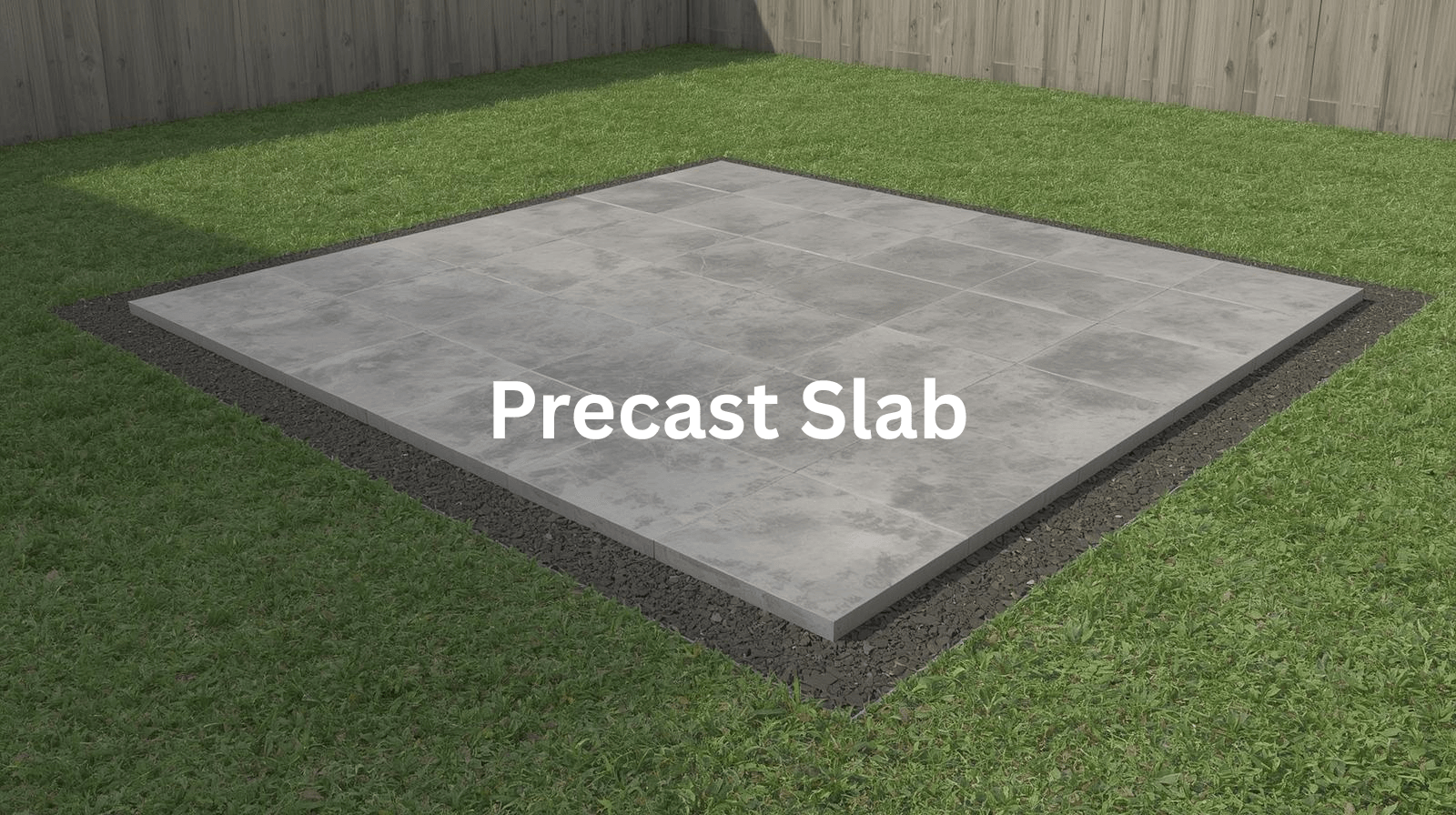
Precast Slab
A precast slab is defined as a reinforced concrete slab that is cast and cured in a controlled factory setting before being transported and installed at the construction site. A precast slab provides consistent quality, faster installation, and superior load-bearing capacity for residential, commercial, and industrial structures.
True Base Concrete Company handles precast slab projects by using precision molds, high-grade concrete, and strict curing methods to deliver durable products. The company ensures accurate transportation, safe lifting, and proper on-site placement so the finished slab maintains structural strength, alignment, and long-term performance.
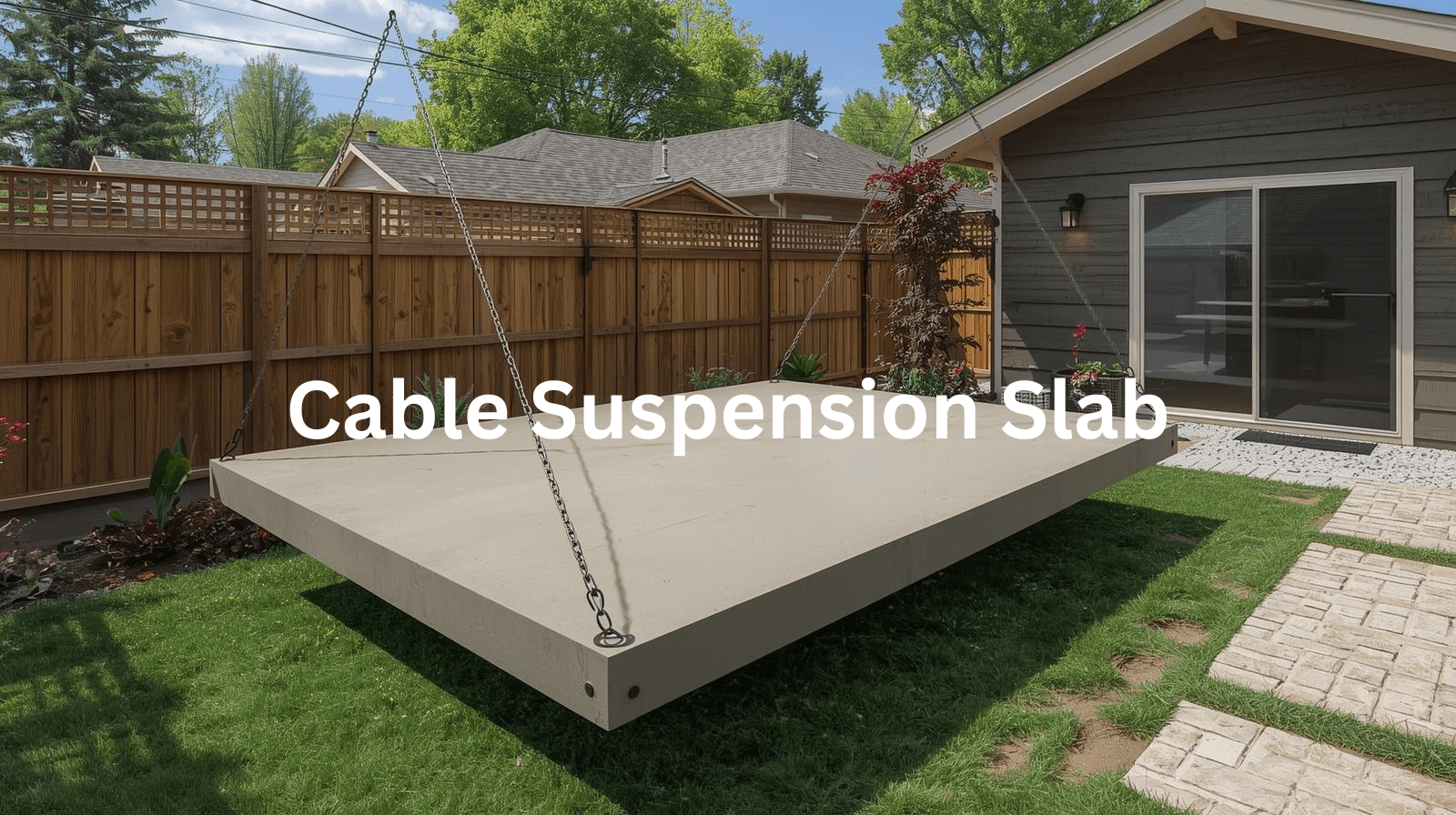
Cable Suspension Slab
A cable suspension slab is defined as a structural slab system supported by tensioned steel cables that transfer load to anchoring points, reducing the need for multiple interior supports. A cable suspension slab creates a lighter yet strong floor system, and the suspended design allows wider spans, better load distribution, and flexibility in architectural layouts.
True Base Concrete Company handles cable suspension slab projects by using precision-engineered steel cables, advanced tensioning equipment, and high-grade concrete to ensure strength and stability. The company manages the suspension process with structural accuracy, quality reinforcement, and continuous safety checks, delivering reliable solutions for both high-rise and commercial construction projects.
What are the Pros of Installing Concrete Slabs in Bakersfield, CA?
Providing Excellent Stability on Local Soils
Providing excellent stability on local soils means concrete foundations maintain load-bearing strength and prevent settlement through soil compaction, grading, and proper base preparation. Local soils become reinforced when aggregates, moisture control, and engineered concrete mixes are applied to improve density and structural performance. True Base Concrete Company ensures stability on such projects by evaluating soil conditions, designing the right subgrade, and applying high-strength base concrete for lasting durability. Project execution stays reliable because crews use advanced compaction equipment, quality aggregates, and precision placement techniques that keep foundations secure on varying soil types.
Delivering Strong Earthquake Resistance
Delivering strong earthquake resistance means structural design achieves durability and safety through reinforced concrete, seismic load distribution, and compliance with earthquake engineering standards. Structural elements like foundations, shear walls, and rebar reinforcement provide stability against seismic vibrations and protect both buildings and occupants. True Base Concrete Company ensures earthquake-resistant projects succeed through high-grade concrete mixes, advanced reinforcement techniques, and strict adherence to structural codes. Engineering teams apply geotechnical analysis, foundation optimization, and quality assurance testing so construction delivers resilience and long-term safety in seismic zones.
Ensuring Long-Lasting Durability
Ensuring long-lasting durability means construction materials maintain structural strength, resistance to wear, and protection against environmental stress over time. Durability in concrete projects involves attributes like compressive strength, moisture resistance, and surface integrity that safeguard buildings, driveways, and foundations from early deterioration. True Base Concrete Company ensures durability by using high-quality aggregates, proper curing methods, and reinforcement techniques that extend the service life of concrete structures. The company handles projects through advanced mixing processes, precision installation, and strict quality control, which guarantees clients receive resilient and long-lasting concrete solutions.
Offering Moisture & Pest Protection
Offering Moisture & Pest Protection means concrete surfaces receive barrier systems that block water intrusion and deter termites, ants, and rodents from damaging the foundation. Moisture barriers combined with pest-resistant sealants create durable protection that preserves structural integrity and indoor air quality. True Base Concrete Company provides moisture and pest protection by applying vapor barriers, epoxy coatings, and pest-resistant treatments during foundation and slab installation. Concrete specialists manage site preparation, sealing, and long-term maintenance solutions so homeowners gain lasting durability, energy efficiency, and healthier living spaces.
Maximizing Cost Efficiency Over Time
Maximizing cost efficiency over time means a construction company reduces long-term expenses by optimizing material usage, extending durability, and lowering maintenance costs throughout a project’s lifecycle. The strategy focuses on how resource allocation, labor management, and material quality directly impact operational savings and project sustainability. True Base Concrete Company handles these projects by using high-strength concrete mixes, advanced curing methods, and precise project scheduling to minimize waste and delays. The company ensures clients gain long-term value because durable foundations, efficient logistics, and consistent quality control lower future repair costs and maximize return on investment.
Enabling Quick Construction
Enabling Quick Construction implies a streamlined process where concrete materials, equipment, and labor are coordinated efficiently to achieve faster project completion without compromising structural quality. The method focuses on reducing downtime, optimizing concrete curing schedules, and ensuring that reinforced concrete foundations and slabs are ready for subsequent construction phases on time. True Base Concrete Company manages such projects by deploying advanced ready-mix concrete solutions, modern batching plants, and precise on-site delivery systems. The company aligns project management with structural engineering requirements so contractors, builders, and clients experience consistent strength, durability, and cost-effective construction timelines.
What are the Cons of Installing Concrete Slabs (and How We Solve Them) in Bakersfield, CA?
Experiencing Cracking from Soil Movement
Experiencing cracking from soil movement means concrete surfaces or foundations show visible fractures because expansive clay soils or shifting ground create uneven pressure beneath slabs. Soil expansion and contraction weaken structural integrity, which often leads homeowners and property managers to notice cracks spreading across driveways, patios, or foundation walls. True Base Concrete Company solves the condition by stabilizing the ground with proven soil treatment methods and reinforcing slabs with specialized concrete repair systems. Concrete restoration techniques combined with ground stabilization ensure long-term durability, allowing residential and commercial properties to maintain strong, level, and safe surfaces.
Facing Moisture Intrusion During Heavy Rains
Facing moisture intrusion during heavy rains implies water seeping through concrete foundations, slabs, or basements, causing structural damage, mold growth, and reduced durability. True Base Concrete Company solves this condition with advanced waterproofing systems, precision foundation repair, and concrete sealing solutions that block water penetration at the source. True Base Concrete Company uses drainage installation, crack injection, and surface protection to reinforce concrete structures against hydrostatic pressure during rainfall. Customers gain long-term protection because the company ensures every foundation surface receives durable moisture barriers that keep living spaces safe, dry, and structurally sound.
Undergoing Heat-Related Expansion in Summer
Undergoing heat-related expansion in summer means concrete surfaces expand under rising temperatures, which can cause cracking, scaling, or structural shifts. True Base Concrete Company uses advanced concrete mix designs, high-grade aggregates, and proper joint placement to control thermal movement and prevent long-term damage. True Base Concrete Company applies curing techniques, moisture control systems, and reinforced structural foundations so that expansion joints absorb seasonal stress effectively. Concrete durability improves through engineered installation methods, ensuring customers receive stable driveways, patios, and commercial slabs even under extreme summer heat.
Limiting Access to Plumbing or Utilities
Limiting access to plumbing or utilities in summer means restricting water lines, drainage systems, or electrical connections during concrete construction, which often disrupts essential household or commercial functions. True Base Concrete Company solves the concern by scheduling foundation repair and concrete installation in phases that maintain access to water, gas, and power utilities throughout the project. True Base Concrete Company uses engineered slab support methods and precision equipment so homeowners and businesses continue to use plumbing fixtures and utility connections without interruption. Concrete specialists coordinate with utility providers and property owners to ensure safe access, preventing downtime in critical services during hot summer months.
Incurring Higher Upfront Costs
Incurring higher upfront costs means a construction client pays more at the beginning for materials, labor, or structural work to secure long-term durability and lower future expenses. True Base Concrete Company reduces this concern by using high-quality concrete mixes, advanced reinforcement techniques, and precise installation processes that minimize repair and replacement costs. True Base Concrete Company delivers value because premium-grade aggregates, strong curing methods, and expert craftsmanship ensure longer-lasting foundations and slabs. Clients benefit from this approach since higher initial investment directly translates into stronger structural integrity, reduced maintenance, and overall cost savings across the project’s lifecycle.
Risking Damage from Seismic Activity
Risking damage from seismic activity means concrete foundations, structural slabs, and load-bearing systems face cracks, displacement, or long-term instability during earthquakes. True Base Concrete Company reduces seismic vulnerability through reinforced concrete solutions, advanced foundation design, and structural anchoring that protect both residential and commercial properties. True Base Concrete Company applies seismic-resistant engineering with high-strength materials, geotechnical assessments, and proper load distribution to safeguard critical structures. Earthquake-prone regions benefit from durable construction practices where concrete reinforcement, vibration control, and foundation stability prevent costly damage and ensure long-term safety.
Why Choose Us for Your Concrete Services in Bakersfield, CA
- Experience You Can Count On: Our years of expertise ensure reliable, consistent results.
- Quality Workmanship: We take pride in every project, delivering craftsmanship that stands the test of time.
- On-Time & On-Budget: We adhere to deadlines and stay within budget, ensuring a hassle-free experience.
- Full-Service Capabilities: From design to installation, we offer comprehensive, quality services for all your concrete needs.
- True Base Concrete Company is licensed by Contractors State License Board (CSLB) and the City of Bakersfield's Development Services Department
- Free Estimates & Expert Advice: Our clear, free estimates and honest guidance help you make informed decisions.
- Proven Customer Satisfaction: Our track record of happy clients demonstrates our commitment to exceeding expectations.

True Base Concrete Company Location in Bakersfield, CA
Bakersfield Office Details
- Mon-Sat 9AM to 6PM
- +1 (661) 371-7412
- muaz.sheikh2k2@gmail.com
- Link to Google Business Profile
- 1712 19th St, Bakersfield, CA 93301, United States
Areas True Base Concrete Company Serve
Frequently Asked Questions (FAQs)
How Much Does It Cost to Lay a 20x20 Concrete Slab in Bakersfield, CA?
A 20×20 concrete slab costs between $2,400 and $6,400 depending on thickness, concrete grade, reinforcement, and labor rates. A 4-inch residential slab with rebar reinforcement generally costs around $6 per square foot, while a 6-inch structural slab with vapor barrier and gravel base can reach $8 per square foot. Cost variations also depend on site preparation, excavation, and finishing methods such as broom finish, stamped concrete, or polished surface.
What Is the Best Base to Put Under a Concrete Slab?
The best base under a concrete slab is a compacted layer of crushed stone or gravel that provides stability, drainage, and load-bearing support. A granular sub-base with a depth of 4–6 inches helps prevent soil movement and moisture retention. A vapor barrier is often installed above the gravel to stop moisture migration into the concrete, improving durability and preventing cracks.
What Is the Best Way to Lay Concrete Slabs in Bakersfield, CA??
The best way to lay concrete slabs is to prepare a stable gravel sub-base, install formwork, place reinforcement like rebar or wire mesh, and pour the concrete evenly. The concrete should be vibrated to eliminate air pockets, screeded to create a level surface, and floated for proper compaction. Curing the slab with water or a curing compound is essential to achieve strength and prevent shrinkage cracks.
What Do You Put Down Before a Concrete Slab?
Before a concrete slab, a contractor typically lays a compacted gravel or crushed stone base to ensure stability and drainage. A vapor barrier is added on top of the aggregate to prevent moisture migration, followed by reinforcement such as rebar or welded wire mesh. Formwork is then placed around the area to shape the slab before pouring concrete.
What is the Difference Between Concrete Driveways and Concrete Slabs?
Concrete driveways are specialized slabs designed to withstand heavy vehicle loads and traffic, while general concrete slabs are flat surfaces used for patios, garages, or foundations. A concrete driveway typically requires thicker reinforcement, higher PSI concrete mix, and a stronger sub-base to prevent cracking under vehicular stress. Concrete slabs for patios or interior floors usually demand less structural strength and may focus more on surface finish.
What is the Difference Between Concrete Foundation and Concrete Slabs?
Concrete foundations are structural base systems that support entire buildings, while concrete slabs are flat horizontal elements used for flooring or exterior spaces. A foundation can include footings, piers, or stem walls, whereas a slab is generally a single-layer surface poured directly on grade. Foundations distribute building loads to the soil, while slabs mainly provide a functional surface for use.
What is the Difference Between Concrete Slabs and Concrete Walkways?
Concrete slabs are broad horizontal surfaces used for floors, patios, or pads, while concrete walkways are narrow paths designed for pedestrian traffic. A walkway often uses decorative finishes, curves, or stamped patterns for aesthetic appeal, whereas a slab typically prioritizes strength and load-bearing function. Walkways generally require less thickness compared to structural slabs.
What is the Difference Between Concrete Slabs and Concrete Patio?
Concrete slabs are versatile flat surfaces that serve structural or functional purposes, while a concrete patio is a specific type of slab designed as an outdoor living space. A patio slab often incorporates decorative finishes, stamped patterns, or colored concrete to enhance outdoor aesthetics, while a general slab may be plain and used for garages, sheds, or utility bases. Patios focus more on design and usability, while slabs focus on structural support.
